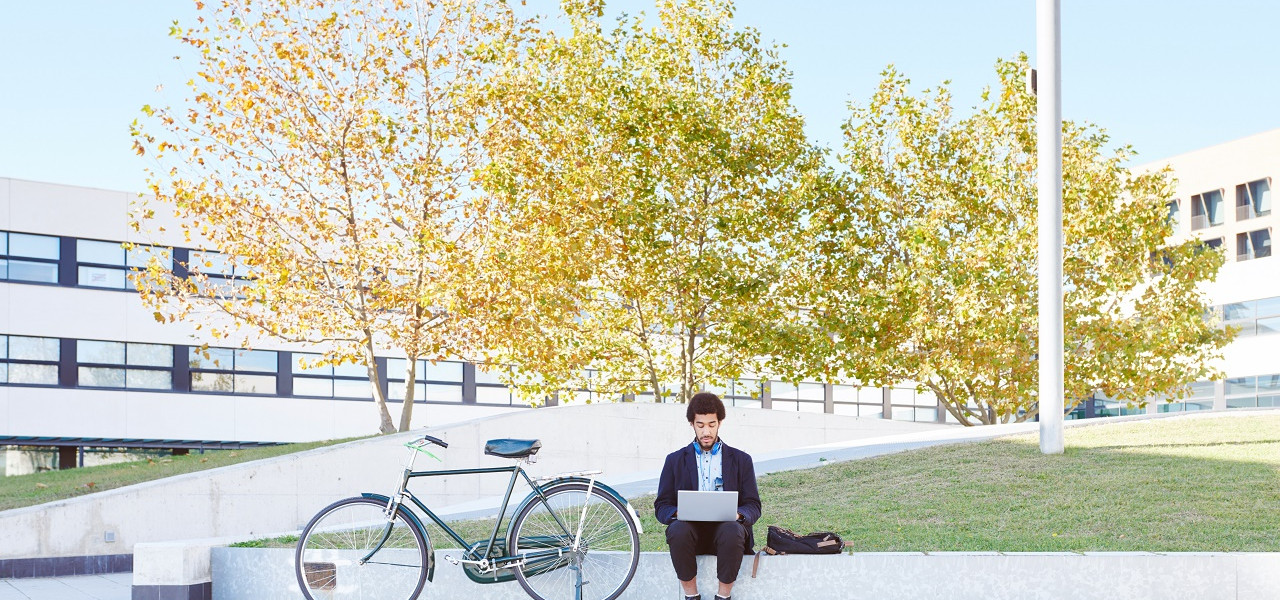What do we mean when we talk about biodiversity?
Biodiversity is a vast term! Another way to think about it is as “natural capital.” It’s a way of considering the environment from an economic point of view and seeing nature as being a “stock” of living and non-living components. Biodiversity constitutes the living component of this natural capital, so it includes the variety of plants and animal species that make up our natural world, and which work together in ecosystems that support everything we need to survive: food, clean water, medicine, etc.
Why has biodiversity preservation become so important now?
Threats to biodiversity are not new, but they are unfortunately becoming more and more important and serious. The scientific community, public authorities and coalitions of different stakeholders – especially those in which BNP Paribas participates – have all highlighted the link between the loss of natural capital and human activities. The 2019 IPBES report, for example, showed that one million plant and animal species are now threatened with extinction. That will have a major impact on all supply chains with far-reaching consequences on poverty, access to clean water, and global food supply. IPBES also projects that this degradation will undermine progress towards 80% of the 17 UN Sustainable Development Goals (SDGs), which have been key to BNP Paribas’ strategy since 2015.
threats to biodiversity are not new, but they are becoming more and more important and serious
What are the main threats to biodiversity?
IPBES has identified five primary pressures on biodiversity related to human activity: changes in land and sea use (deforestation, land artificialisation), direct exploitation of organisms (overuse of fresh water resources, overfishing), climate change (rising temperatures), pollution (plastic and cigarette butts in particular), and invasive alien species that affect local ecosystems.
How can a bank contribute to addressing these issues?
For me, it is essential that banks contribute to protecting the Earth's ecosystems while also financing an economy that can respond to people’s basic needs: heat, food, water, etc. There are several ways that banks can achieve this: on the one hand, we can limit the banking activities that have a negative impact on biodiversity, and on the other, foster those that will have positive impacts on the environment.
The financial sector as a whole has a major role to play since it has the power to influence the entirety of the economy. A worldwide commitment by the financial sector can be a very influential action, and we all know that preserving biodiversity is crucial for the successful transition to a sustainable economy. That is why it has become a priority in our work with other financial and extra-financial actors and increasingly in our discussions with clients.
« The financial sector as a whole has a major role to play since it has the power to influence the entirety of the economy. »
Ambitious commitments in sustainable financing
Between now and 2025, BNP Paribas has objectives of €3 billion in financing related to the protection of terrestrial biodiversity, €1 billion in financing for the ecological transition of marine vessels, €55 million euros in investments for the protection and restoration of natural capital, the assessment of all our corporate customers on biodiversity criteria, and more….
Why are events like the Giverny Forum or the IUCN Congress important for France and on an international scale?
At BNP Paribas, we have long been convinced that sustainable finance can play a role in addressing the serious issues affecting the environment and society. That’s why it is part of the Group’s Company Purpose. However, we also know that we cannot act alone, so we participate in coalitions with other actors, be they financial, public, or private. The IUCN Congress in Marseille and the Giverny Forum this September are crucial events that bring together NGOs, scientists, large companies and others to discuss CSR issues, and biodiversity specifically. They allow us to exchange with these different actors on strategies for moving forward and identifying key areas where we can work with others to implement concrete actions. For example, this year at Giverny a workgroup that I participated in, “Acting for biodiversity,” will be publicly presenting five propositions for how banks, public authorities, researchers and businesses can better integrate biodiversity into their models and what authorities and regulatory bodies can do to help.
Giverny and the IUCN
The first week of September, BNP Paribas will participate in the Giverny Forum and the IUCN Congress in Marseille, two major events bringing together various stakeholders around the issue of biodiversity and how to preserve it. As France’s leading CSR conference, the Giverny Forum on September 3rd will include 700 participants, 7 French ministers, 75 expert speakers and 47 partner organisations all dedicated to determining concrete actions for the planet and the fight against climate change. The IUCN Congress from September 3rd to the 11th will have a large international scope of scientists, NGOs, government bodies (like the French minister for the Ecological Transition), and partner businesses like BNP Paribas to exchange on innovative solutions for biodiversity and the important next steps in its preservation.
Who is Sebastien Soleille?
Sébastien Soleille has 20 years of professional experience in energy transition and environment, sustainable development, industrial environment, biodiversity and the circular economy.
Before joining BNP Paribas, Sébastien began as an environmental economist at INERIS (the French National Institute of Industrial Environment and Hazards).
He then went on to join the major international oil and gas company TOTAL, where he held numerous positions during nine years including Manager of TOTAL’s R&D program on alternative fuels, Head of the environment Department for an oil & gas refinery, Sustainable Development Leader for new energies, and others.
Sebastien also worked during more than four years as Director in charge of Energy Transition at Deloitte.
Today, with his team as part of the BNP Paribas Group’s CSR department, Sébastien works with employees to reduce environmental impacts, both for themselves while they are at work and through the support they offer the Group’s clients.


